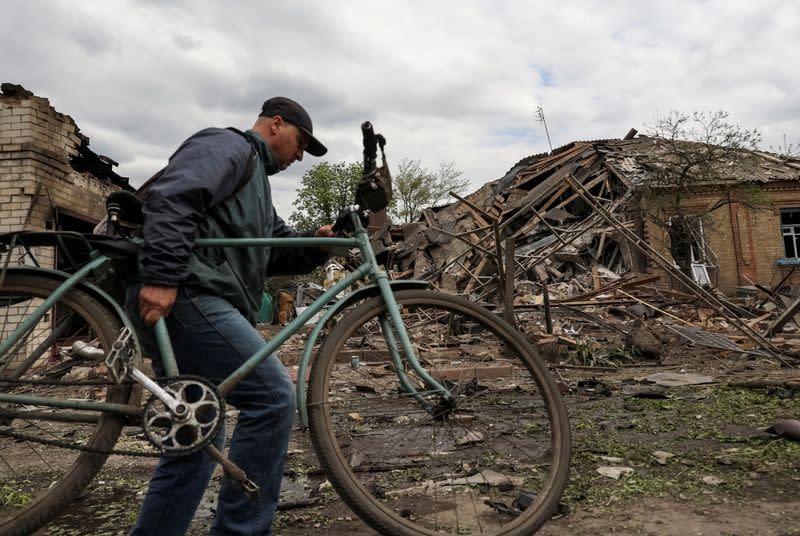Spanish PM will ask Biden to listen to China, Brazil on Ukraine
(This May 11 story has been corrected to remove reference to more weight in paragraph 1)
By Belén Carreño
MADRID (Reuters) - Spanish Prime Minister Pedro Sanchez will ask U.S. President Joe Biden in Washington on Friday to listen to the opinions of non-NATO members such as China and Brazil on the war in Ukraine, a Spanish diplomatic source said.
Madrid agrees with Washington on the illegality of Russia's invasion of Ukraine and the need to arm Kyiv's forces.
But it is positioning itself as an intermediary because of its close ties to Latin American countries and more conciliatory relations with Beijing.
The first White House meeting between the two NATO allies comes just weeks before Sanchez takes over the presidency of the Council of the European Union for the second half of the year.
Sanchez visited Beijing in March and received Brazilian President Luiz Inacio Lula da Silva in Madrid last month.
China is an ally of Russia and has advocated an alternative peace plan to the one championed by NATO allies. Lula has also made controversial statements on ending the conflict in Ukraine, from which Sanchez has distanced himself.
But Sanchez will convey to Biden the divergent views of Beijing and Brasilia, who are also impacted by the war, the source said.
The meeting takes place as Europe seeks to bolster homegrown industry and secure reliable sources of raw materials and energy as well as finding ways to rival the green subsidies announced by the Biden administration under the Inflation Reduction Act.
Sanchez will outline to Biden the concept of "open strategic autonomy", a central policy of his forthcoming European mandate which, according to a second government source, is not intended to veer towards protectionism but to reduce the Europe's "vulnerabilities".
Potential cooperation on the manufacture and/or supply of microchips and semiconductors and the exploitation of the rare earth minerals from Latin America will also be on the agenda between the two leaders.
(Reporting by Belén Carreño, editing by Aislinn Laing and Angus MacSwan)



